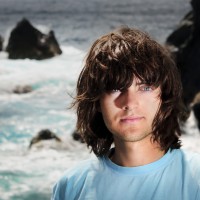TEDxDelft 2012 | Performer: Boyan Slat – How the oceans can clean themselves
 Boyan Slat (@BoyanSlat, Delft, 1994) combines environmentalism, creativity and technology to tackle global issues of sustainability. Currently working on oceanic plastic pollution, he believes current prevention measures will have to be supplemented by active removal of plastics in order to succeed. With his concept called Marine Litter Extraction, Boyan Slat proposes a radical clean-up solution, for which he won the Best Technical Design award 2012 at the TU Delft.
Boyan Slat (@BoyanSlat, Delft, 1994) combines environmentalism, creativity and technology to tackle global issues of sustainability. Currently working on oceanic plastic pollution, he believes current prevention measures will have to be supplemented by active removal of plastics in order to succeed. With his concept called Marine Litter Extraction, Boyan Slat proposes a radical clean-up solution, for which he won the Best Technical Design award 2012 at the TU Delft.
Where millions of tons of plastic kill ocean life and poison food chains, Boyan sees opportunities to combat this. While researching ocean plastics during school holidays, he performed analysis on various fundamental topics (including particle sizes, plastic/plankton separation and the amount of plastic in the oceans), leading up to the first realistic concept for cleaning up the world’s oceans.
Now a first-year Aerospace Engineering student at the TU Delft, Boyan has always been passionate about applying technology in an original way (at age fourteen he set a world record with launching 213 water rockets), and as an (underwater)photographer and videographer witnesses environmental degradation through his very own eyes.

My mini-TED idea is that the community turoting system needs a radical redesign. As a former literacy vol, I have anecdotal data that 20% of all adult learners in community literacy centers are too learning disabled to learn to read through working with community tutors rendering community turoting centers as they exist now useless for 20% of users.For these students low-income adults without the funds to pay for the costly one-on-one turoting they need to make progress in learning to read even the place of last resort offers no hope. Some struggle for years with little or no progress towards their goal of the most basic functional literacy: the ability to read a map, read a street sign, write a check or fill out a job application.The trend in adult basic education is to cater to the GED student, the person who is reachable through community turoting. This leaves 20 percent of adults in literacy programs nationwide faced with a lifetime of poverty and illiteracy and nowhere to turn for help. My idea? That all community turoting centers need to serve these people too, and every center should have at least one staff member professionally trained in working with LD learners.
Great idea Mei! Thanks for sharing!